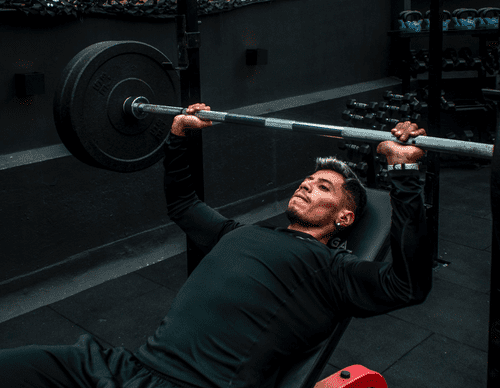Eating the right foods before a workout can make a big difference in your performance and energy levels, so what to eat 30 minutes before workout to get the most out of your workout.
So what to eat 30 minutes before workout? Eating a small, carb-rich meal with moderate protein 30 minutes prior to workout for energy boost. Avoid heavy, high-fat or high-fiber foods that cause discomfort during workout. Stay hydrated by drinking water before exercise. Good options include banana with almond butter, whole-grain toast with eggs or Greek yogurt with berries.
Exercise and nutrition go hand in hand, and what you eat before your workout can have a significant impact on your performance and recovery. The right combination of nutrients can provide your body with the energy it needs to push through a tough workout and can also aid in muscle repair and growth. Eating the right foods 30 minutes before your workout can make a big difference in how you feel and how you perform. In this article, we will explore the best foods to eat before your workout and how they can enhance your performance.
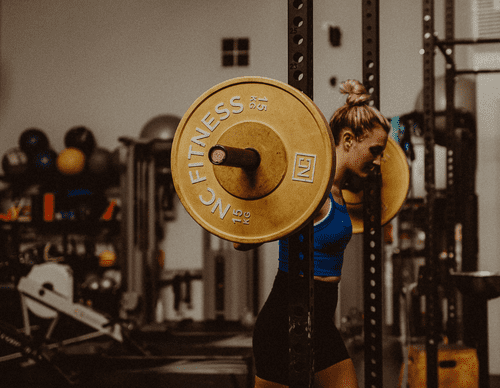
Table of Contents
5 Best Pre-workout Foods
- Banana
- Protein shakes
- Oatmeal
- Yoghurt
- Brown rice with chicken
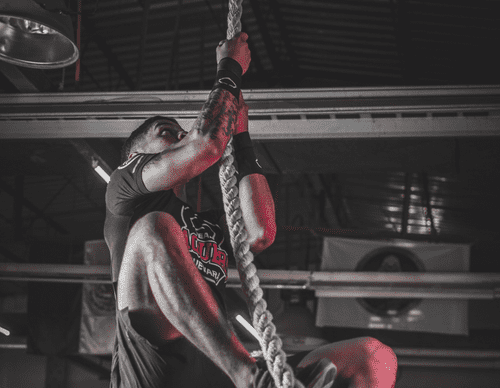
Best And Worst Pre Workout Food
| Best Pre Workout Food | Worst Pre Workout Food |
| Coffee | Energy Drinks |
| Fruits | Spicy foods |
| Milk | Fast Food |
| Dry Fruits | Deep Fried Food |
| Eggs | Granola Bar |
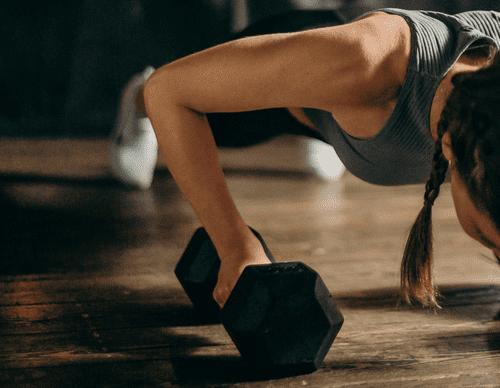
Pre-workout Foods
What to Eat Before a Workout
Knowing what to eat is very essential before a workout as you get most of your energy from the first meal before hitting the gym. Fuelling your body with the right nutrients prior to exercise will give you the energy and strength you need to perform better. Macronutrients have a specific role before workout, however the ratio may vary depending on the exercise or workout type or even vary from person to person. Lets talk about some macronutrients to know your pre-workout basics better.
Below is a brief look at the role of each macronutrient.
Carbs
Carbs fuel the muscles by providing them needed glucose. Glycogen is the way the body processes and stores glucose mainly in the muscles or liver, our muscles have limited stores of glycogen and as it depletes our output and intensity diminishes with it. Studies have consistently shown that carbs can increase glycogen stores and utilisation while boosting carb oxidation during exercise. For short and high intensity workouts your main energy source is glycogen stores from your muscles, but for short and longer workouts the degree to which carbs are used depends on several factor, including your type of training and intensity but also your overall diet.
A well known way to maximize your glycogen stores is carb loading, this involves consuming a high carb diet for 1-7 days.
Protein
Eating protein before your workout has been shown to increase muscle protein synthesis, many studies have documented that pre-workout protein consumption improves athletic performance. Eating protein with or without carbs prior to workout have been studied to show a positive enhancement in muscle growth compared to placebo.
Other benefits of eating protein before exercise include
- Increased muscle mass
- Improved muscle recovery
- Increased strength and lean body mass
- Enhanced muscle performance
Fat
Where glycogen is considered fuel for short and high intensity workouts, fats can be considered as main fuel for longer and less intense workouts. Some studies have investigated the results of fat intake on athletic performance, however these studies have concluded the results of a high fat diet over a fat rich pre-workout diet.
For example, one review found that following a low carb, high fat diet could improve body composition and increase maximal oxygen uptake when paired with high intensity interval training (HIIT)
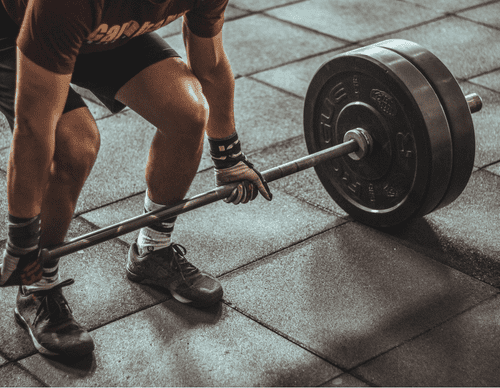
Pre-workout timing is key
The timing of your meal is also an important aspect of pre-exercise nutrition. To get the best result out of your training, try to eat a complete meal consisting carbs, fats and protein 2-3 hours before your workout. If you have longer workout sessions then you should consider sticking to what you ate 2-3 hours before workout as what you eat 1 hour before your workout doesn’t impact your workout as much.
It is not possible to eat 2-3 hours before workout every single time, for that you can eat you can go with a simple pre-workout food. Remember the sooner you eat before the gym the simpler the food needs to be to give you optimum result. If you choose to eat 30-45 mins before workout, choose a food that is simple to digest and contains mainly carbs and some kind of protein, this may also help prevent any stomach discomfort during workout.
Natural pre-workout food
If you don’t already include natural pre-workout foods in your diet, this one’s for you. A natural pre-workout food is a natural substance that boosts energy levels, increases performance and endurance during physical activities, helps the body recover faster after exercise, or enhances cognitive function.
You can get natural pre-workout foods from whole-food sources or try dietary supplements. Some examples of natural pre-workout foods are fruits, vegetables, nuts/seeds/legumes, herbs & spices, animal products, dairy products.
Whole foods are preferred to supplements because they have not been chemically altered to retain only specific nutrients that are beneficial for athletes’ needs while removing other natural substances that may be harmful for human consumption.
Natural pre-workout foods are natural substances, thus “natural” supplements are made from natural sources. Supplements do not come from natural sources and they can be chemically altered to include only specific nutrients that are beneficial for a particular athlete’s needs while removing other natural substances that may be harmful for human consumption.
Here is a list of natural pre-workout foods:
* organic spinach
* organic wholewheat bread
* organic black beans
* natural protein powders
* organic pumpkin seeds
* natural non juice powder concentrate supplement
Note: A natural pre-workout food does not necessarily have to contain caffeine or any stimulants as some people believe.
Things To Know Other Than What To Eat 30 Minutes Before Workout
Know more about your pre-workout food.
We all want to get the most out of a workout – to train harder, swim faster, run quicker, jump higher. So, are you ready to munch your way to success?
Here are some pre-workout foods that may help you achieve what you want.
Oats
Oats are full of fiber, they release carbohydrates gradually. Because of this slow release the energy levels are kept consistent throughout your workout resulting in the ability to train harder and longer. They also contain Vitamin B which helps convert carbohydrates into energy.
Banana
Banana is also known as nature’s power bar, bananas are packed with carbohydrates and potassium, which supports nerve and muscle function.
Whole Grain Bread
One slice of whole grain bread is an excellent source of carbs. You can add some hard-boiled eggs for a protein-packed snack, or some low-fat turkey.
Dried Fruits
An easy and quick pre-workout snack, fix yourself some dried berries, apricots, figs, and pineapple. Dried fruits are a good source of simple carbohydrates that are easily digestible.
Fruits and Greek Yogurt
One of the best combos for pre-workout. The fruit is full of carbohydrates while Greek yogurt packs a protein-filled punch. The carbs in the fruit break down quickly and are used as fuel during your workout, while the protein is stored a little longer and is used to prevent muscle damage.
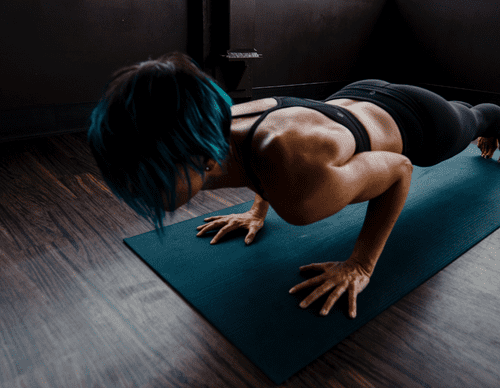
Do I eat before or after workout
When it comes to exercising and nutrition, one of the most common questions is whether it is best to eat before or after a workout. The answer to this question is not a one-size-fits-all and depends on several factors including your individual goals, the type of workout you’ll be doing, and the timing of your meals.
If your goal is to lose weight, it’s best to workout on an empty stomach. This is because when your body is in a fasted state, it will burn stored fat for energy instead of the food you’ve recently consumed. This is known as “fat adaptation” or “metabolic flexibility” which is the ability of the body to switch between burning carbohydrates and fats for energy. Additionally, when you exercise in a fasted state, your body releases growth hormone, which aids in fat loss. It’s also important to note that if you’re going to be doing a high-intensity workout, it’s best to avoid eating a large meal beforehand as it can cause discomfort or even nausea.
On the other hand, if your goal is to build muscle or improve endurance, it’s best to eat a small meal before your workout. This will provide your body with the energy it needs to perform at its best. Carbohydrates are the primary fuel source for intense exercise. Consuming carbohydrates before a workout can improve performance and delay fatigue. Eating a small meal that is high in carbohydrates and protein about 30 minutes to an hour before your workout is ideal.
After your workout, it’s important to eat a meal that contains a balance of carbohydrates and protein within 30 minutes to an hour. This will help your body recover and repair muscle tissue, as well as replenish glycogen stores. Carbohydrates are essential for restoring muscle glycogen, which is the muscle’s primary energy source during intense exercise. And, Protein is vital for muscle repair and growth. Eating a meal that contains both carbohydrates and protein after your workout is crucial to aid in recovery and repair.
What Food To Avoid Before Workout
Exercising on a full stomach can lead to discomfort and decreased performance, so it’s important to be mindful of what you eat before a workout. Certain foods should be avoided to ensure optimal performance and to prevent stomach discomfort during your workout.
High-fat foods: Foods that are high in fat take longer to digest and can cause stomach discomfort during a workout. Avoid foods such as fried foods, fast food, and high-fat snacks before exercise.
High-fiber foods: Foods that are high in fiber can cause gas, bloating, and discomfort during a workout. Examples of high-fiber foods include beans, broccoli, and Brussels sprouts.
Spicy foods: Spicy foods can cause stomach irritation and can lead to indigestion during a workout. It’s best to avoid spicy foods before exercise.
High-sugar foods: High-sugar foods can cause a spike in blood sugar levels and can lead to a crash during a workout. Avoid sugary snacks and drinks before exercise.
Dairy products: Dairy products can be difficult to digest for some people and can cause stomach discomfort during a workout. Milk, cheese, and yogurt should be avoided before exercise.
Heavy meals: Eating a large, heavy meal before a workout can lead to discomfort and decreased performance. It’s best to stick with a small, easily digestible meal before exercise.
It is important to experiment with different foods to see what works best for you, but these foods should be avoided before a workout for optimal performance. A good rule of thumb is to stick with easily digestible carbs, like fruits, and lean protein, like yogurt or a hard-boiled egg, and avoid anything that is high in fat or fiber. Additionally, it’s important to drink enough water or electrolyte-rich fluids before, during, and after your workout to ensure optimal performance and recovery.
